Savanna House (indoor)
Savannas are characterized by distinct dry and rainy seasons and little precipitation in dry season. In such regions the plants have several characteristic features to withstand dry periods. The plants in the greenhouse include cacti and agave in American zone; aloe, baobab, and succulent plants of Euphorbia in African zone; and Eucalyptus, Callistemon speciosus (bottlebrush), and Proteaceae in Australian zone. Many plants of Cycadaceae are also seen in the house.
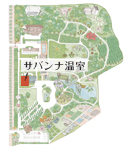
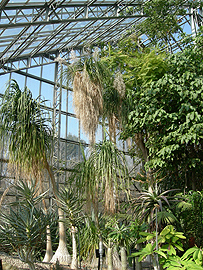
Beaucarnea recurvata. The swollen base of the stem serves to store water
(photo taken in February).
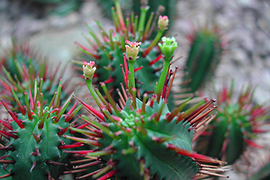
Euphorbia enopla. The plant has a close resemblance to cacti in appearance, and that is one example of morphological convergence to dry vegetation
(photo taken in June).
Tropical Rainforest House (indoor)
The greenhouse is divided into two sections, one resembling low altitude rainforests, and the other simulating mountain rainforests of Southeast Asia. The section of Low Altitude contains tall trees of Dipterocarpaceae, Moraceae, and Arecaceae, and various epiphytes, climbers and other plants. The section of High Altitude includes plants of Fagaceae and Theaceae, Rhododendron, orchids, ferns and carnivorous plants.
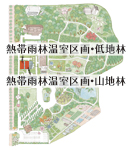
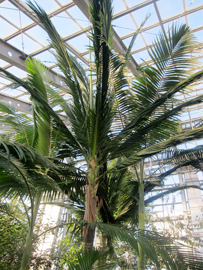
Satakentia liukiuensis. The palm tree is endemic to Ishigaki and Iriomote islands in Japan.
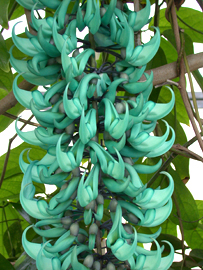
Jade vine (Strongylodon macrobotrys). The jade flowers are considered to attract bats as pollinators.
Aquatic Plants House (indoor)
Tropical Aquatic Plants Room: Plants that grow in rivers, lakes and swamps of subtropical to tropical regions.Visitors can observe the unique adaptations made by aquatic plants to suit their living environment.
Mangrove Plants Room: Mangrove trees that grow on raised coral reefs are displayed here.
Aqua Slope: The exhibits show the pollination systems of aquatic plants using insect, wind and water.
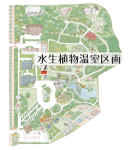
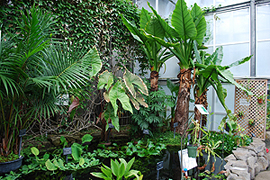
Tropical Aquatic Plants Room. The large plant on the right back is Typhonodorum lindleyanum, native to Madagascar (photo taken in August)
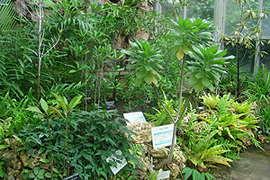
Mangrove Plants Room. Southeast Asian Mangrove trees (Bruguiera gymnorhiza, Rhizophora mucronata, and others), and raised coral reef plants (Heliotropium foertherianum, Asplenium setoi, and others)
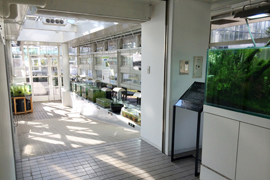
Aqua Slope. Diverged pollination systems are exhibited.
Around House
Numerous herbs and bulbous plants that grow in the Mediterranean climate, marked by dry summers and humid winters, are displayed in the area surrounding the Savanna House. Trees of Fagaceae, Lauraceae, Theaceae, and Ericaceae from Southern China, which are relative to Japanese warm-temperate trees, are planted around the Tropical Rainforest House.
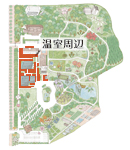
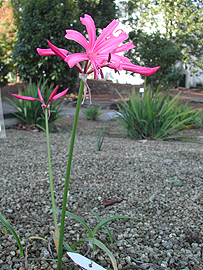
Nerine bowdenii. Mediterranean plants are planted around the Houses (photo taken in late November).
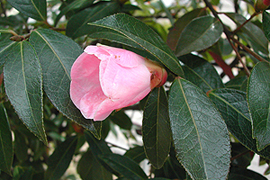
Camellia saluenensis from Southern China grown outside the Houses (photo taken in early March).
